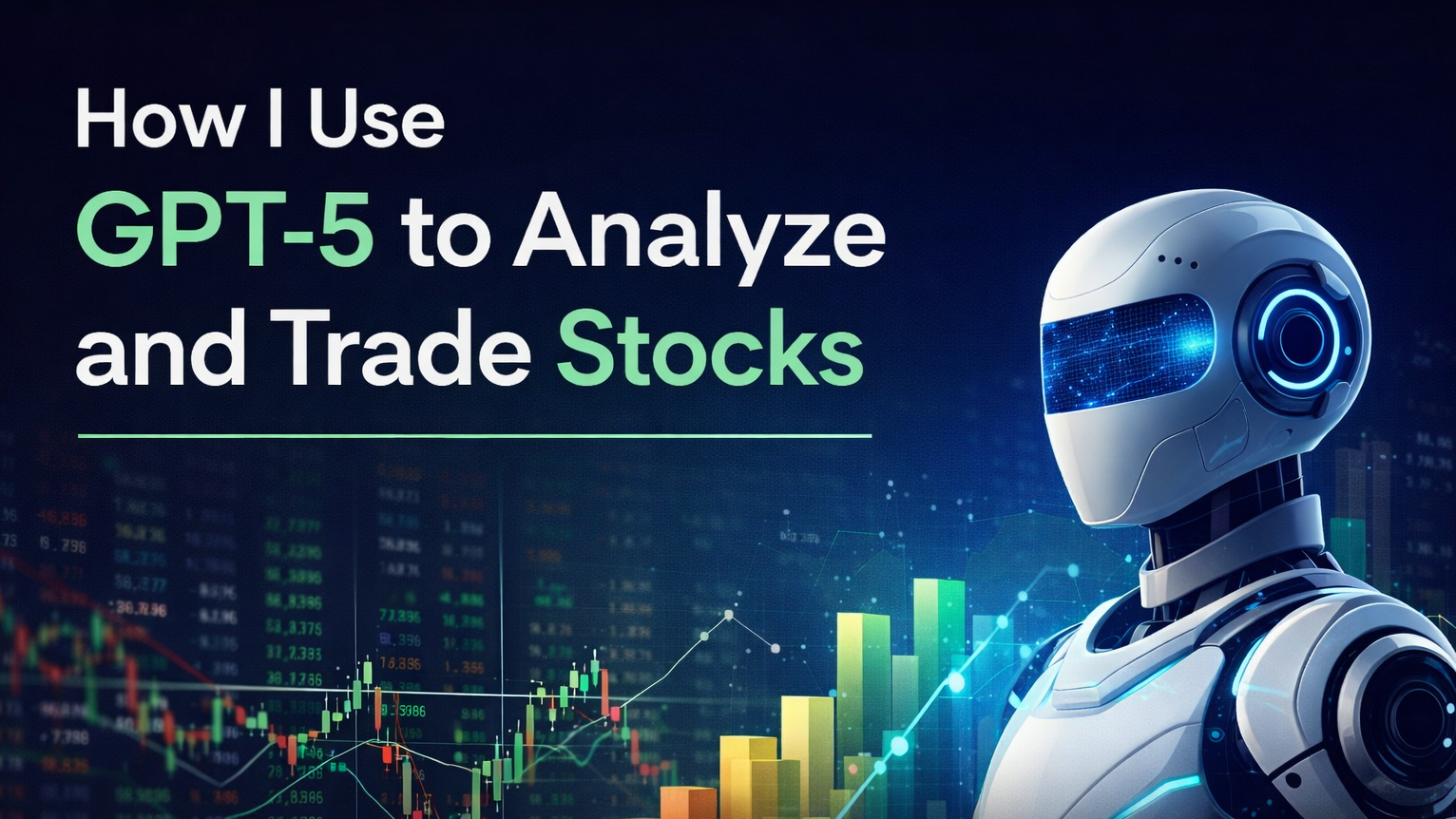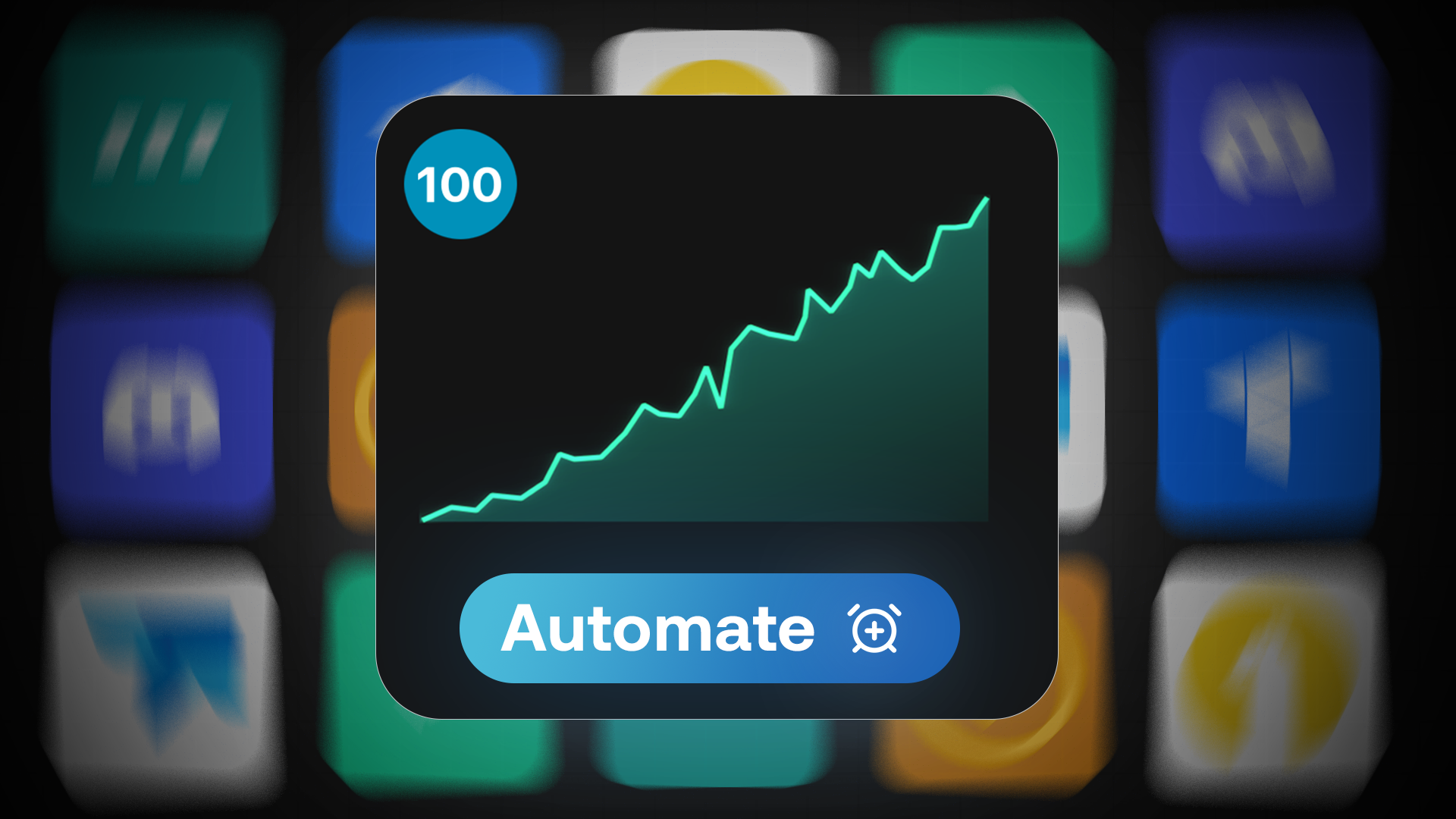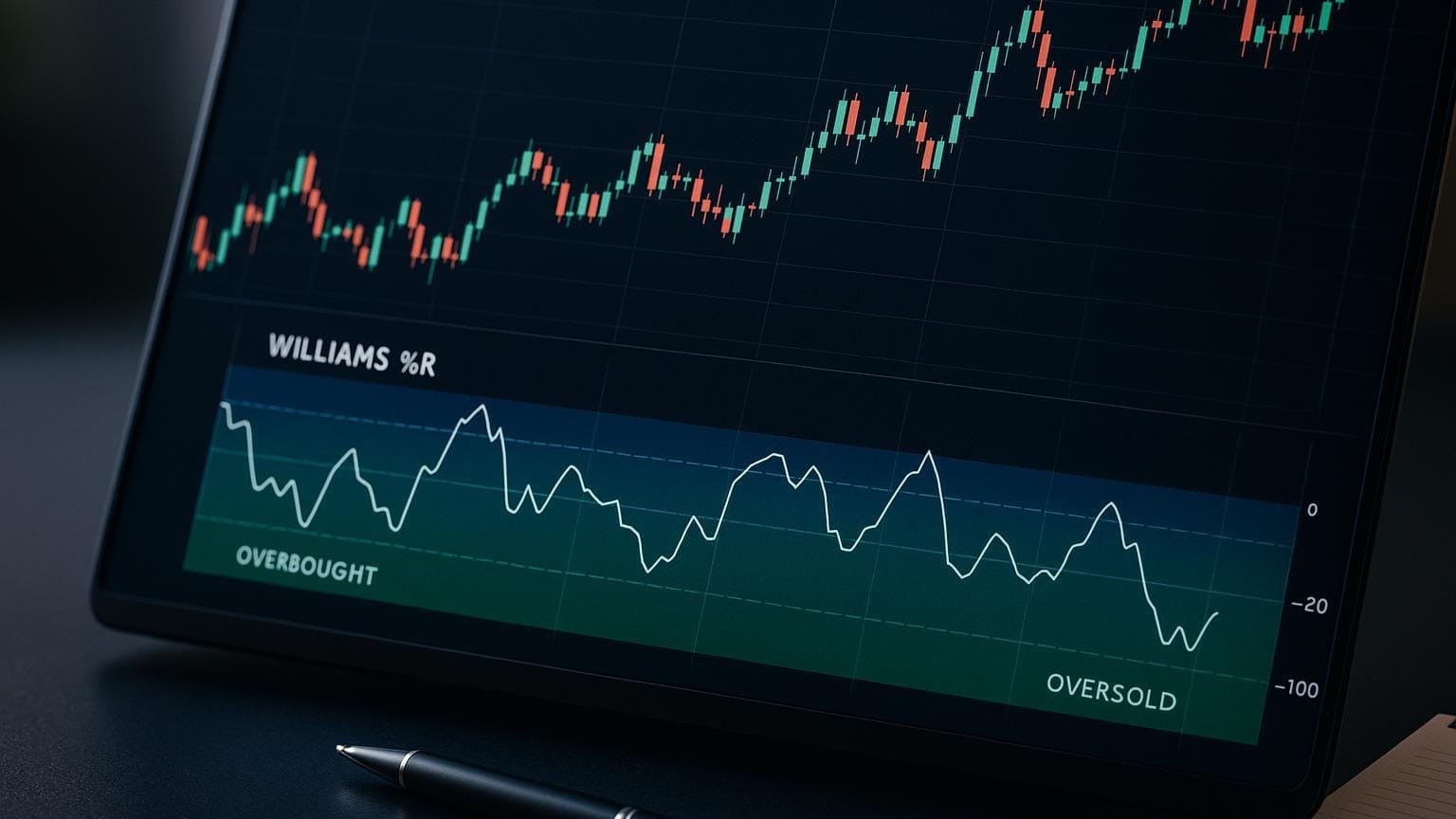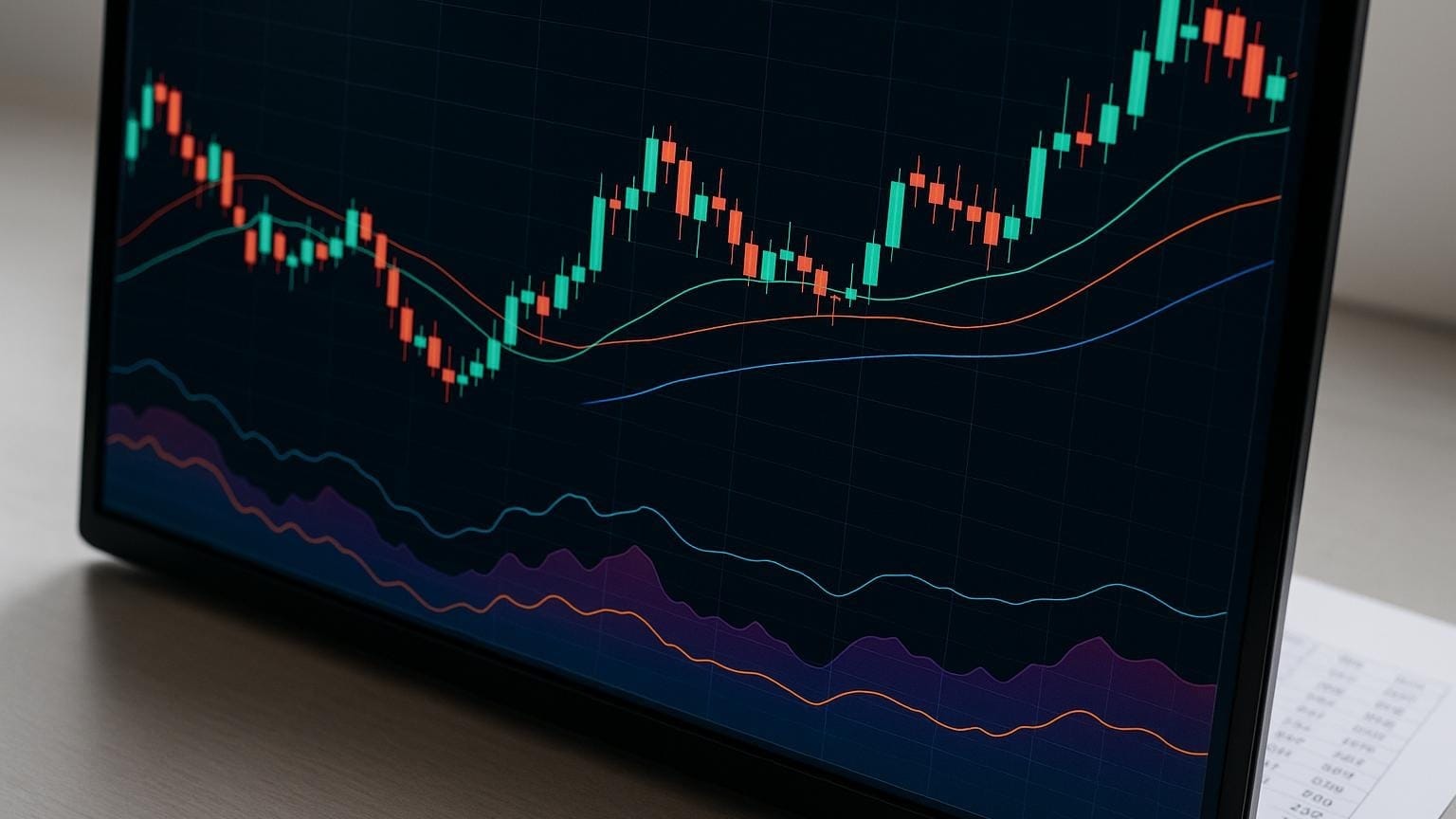Explore the best multi-asset prop firms for traders seeking diverse market access and profitable opportunities across various asset classes.
Multi-asset proprietary trading firms give traders access to various markets, such as forex, stocks, futures, cryptocurrencies, and commodities, all through one account. These firms use their own capital, which is one reason they’re often described as proprietary trading operations. For U.S. traders, firms like multi-asset prop firm The Trading Pit (official site), Apex Trader Funding futures prop firm (official site), TradeDay futures prop firm (official site), ThinkCapital, and Hudson River Trading offer unique benefits. For additional perspective, review LuxAlgo’s article on prop-trading pros and cons. Here's a snapshot:
Prop Firm Challenge Strategies: How to Pass Evaluations With Proven, Rule-Aware Playbooks
Passing a prop firm challenge is rarely about finding a “perfect entry” — it’s about trading a strategy that fits the evaluation rules. Most traders fail because their approach doesn’t align with the firm’s daily loss limits, trailing drawdown mechanics, consistency rules, or news restrictions. The fastest way to improve your odds is to use a rules-aware strategy playbook that’s been tested under realistic constraints and can be applied consistently across sessions.
That’s why LuxAlgo maintains a dedicated prop firm strategies hub where you can quickly access ready-to-use strategies built specifically for prop firm evaluations. These strategies are designed to:
- Have proven to work in the past by demonstrating performance across historical market conditions.
- Would have passed historical challenges when applied with the firm’s typical rules and constraints in mind.
- Have a higher probability of passing current challenges because they’re built around disciplined risk controls and repeatable execution (rather than impulsive “one-off” trades).
Instead of spending days trying to piece together a strategy from scattered ideas, you can use the LuxAlgo prop firms page to compare firms, jump into the firm you’re considering, and access relevant strategy options fast. This helps you stay focused on what matters most during an evaluation: clean execution, drawdown protection, and consistent risk per trade.
In many cases, you can also unlock high discounts on tools and strategy access (as high as available during active offers), which makes it easier to build a full evaluation workflow — from signal generation to risk management — without overpaying for multiple platforms.
Suggested Strategies
If you’re not sure where to start, head to the LuxAlgo prop firms portal, choose the prop firm you’re targeting, then select strategies that match the firm’s rules (daily loss limits, trailing drawdown, minimum trading days, and restricted trading windows). The goal is simple: pick a strategy that historically performs well, then execute it with consistent sizing so your equity curve stays compatible with the challenge’s risk constraints.
- The Trading Pit: Wide asset variety through CFDs (where available) and futures programs, simple fee structure, and strict risk management.
- Apex Trader Funding: Futures-focused, strong profit split options, and flexible account sizes.
- TradeDay: Futures-only, straightforward structure, and simplified rules for funded progression.
- ThinkCapital: Multi-asset trading with flexible platforms and competitive challenge options.
- Hudson River Trading: Tech-driven market maker and systematic trading firm, but not for retail traders.
Quick Comparison
| Firm | Assets | Profit Split | Key Feature | Drawback |
|---|---|---|---|---|
| The Trading Pit multi-asset prop firm | CFDs (where available), Futures | 80-85% | Broad market access | Strict risk rules |
| Apex Trader Funding futures prop firm | Futures | 90-100% | High profit splits | Limited to futures |
| TradeDay futures prop firm | Futures | 75-80% | Simple fees and structure | Narrow asset range |
| ThinkCapital | Forex, Cryptos, Commodities, Indices | 70-85% | Multi-platform options | Limited U.S. platform access |
| Hudson River Trading | All major classes | N/A | Advanced tech-driven trading | Not open to retail traders |
Each firm caters to different trading styles and goals. Choose based on asset access, fees, profit splits, and trading platforms.
I Ranked The BEST Prop Firms | Tier List (UPDATED)
1. The Trading Pit multi-asset prop firm (official site)
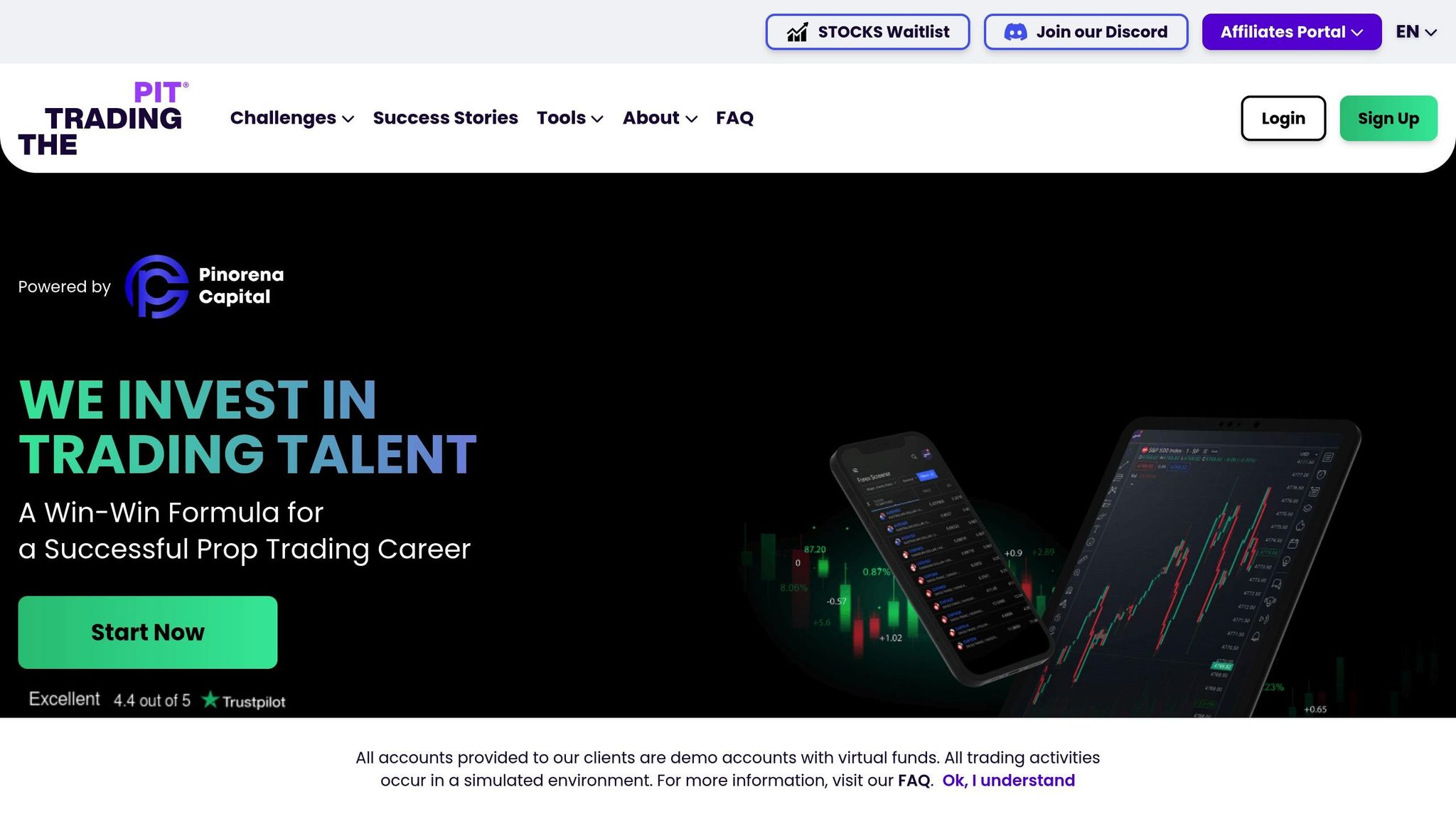
The Trading Pit (TTP) has established itself as a prominent multi-market prop firm best known for CFD programs (where permitted) and futures-based offerings, with services marketed internationally. In practice, availability and product access can vary by region, so traders should always confirm the firm’s eligibility and restrictions for their jurisdiction on the official website.
Asset Class Availability
TTP positions itself around multi-market access through distinct programs. For example, its CFD offering focuses on markets commonly associated with FX and global indices, while its futures offering targets listed futures products tied to major indices and other futures markets[1]. This matters because “multi-asset” in prop trading can mean very different things across firms: sometimes it’s multiple CFD categories, and other times it’s listed futures plus CFDs under separate account structures.
For traders who want to blend approaches, TTP’s structure can support both “specialize in one market” and “run multiple market playbooks” styles—as long as the chosen program supports the instruments you need and your location is eligible[1].
Spreads and Commissions
TTP generally presents a structured cost model (program fees plus trading costs that depend on instrument type). Because prop firms can adjust fee schedules and platform routing over time, traders should confirm the exact commission/spread setup on the firm’s current rules and product pages before purchasing an evaluation.
| Asset Class | Commission Structure |
|---|---|
| Forex | $5.00 per round lot |
| Metals | $5.00 per round lot |
| Energies Futures | $5.00 per round lot |
| CFD Cash Indices | $5.00 per round lot |
| CFD Futures | $5.00 per round lot |
| US Equities | 0% commission |
| EU Equities | 20% commission |
| UK Equities | 20% commission |
| Cryptos | 20% commission |
The 0% commission on US equities can be attractive for stock-focused traders, while flat-rate schedules on FX and futures-like products help keep costs predictable. As with any prop firm, always compare “all-in cost” (fees + spreads + commissions + slippage expectations) rather than looking at a single line item.
Leverage Policies
TTP emphasizes risk controls over aggressive position sizing, and it actively enforces behavior-based rules (for example, restrictions intended to prevent reckless trading). This is important because leverage can magnify both gains and losses—so your real constraint in most prop environments isn’t the headline leverage number, but the account’s drawdown limits and “rule-based” disqualifiers.
A strict "Gambling Policy" is in place to prevent reckless trading behavior. Overleveraging is prohibited, and traders are expected to use stop-loss orders and manage trade sizes carefully to mitigate potential losses[2].
To make these rules more concrete, it helps to understand how firms measure downside. Many programs are effectively governed by maximum drawdown constraints (often static or trailing), which can limit strategy styles such as martingale sizing, “average-down” approaches, or oversized news trading—even if they look profitable in the short term.
Platform Compatibility
TTP tailors its platform configurations to the account type traders select, whether for CFDs or Futures[3]. This flexibility ensures that traders can work within their preferred environment while maintaining access to the product set offered by that program.
With international marketing reach, TTP’s platform stack is built to support traders across different regions and product eligibility rules. Always validate (1) instrument availability, (2) platform access, and (3) restricted-country rules prior to purchasing a challenge.
2. Apex Trader Funding futures prop firm (official site)
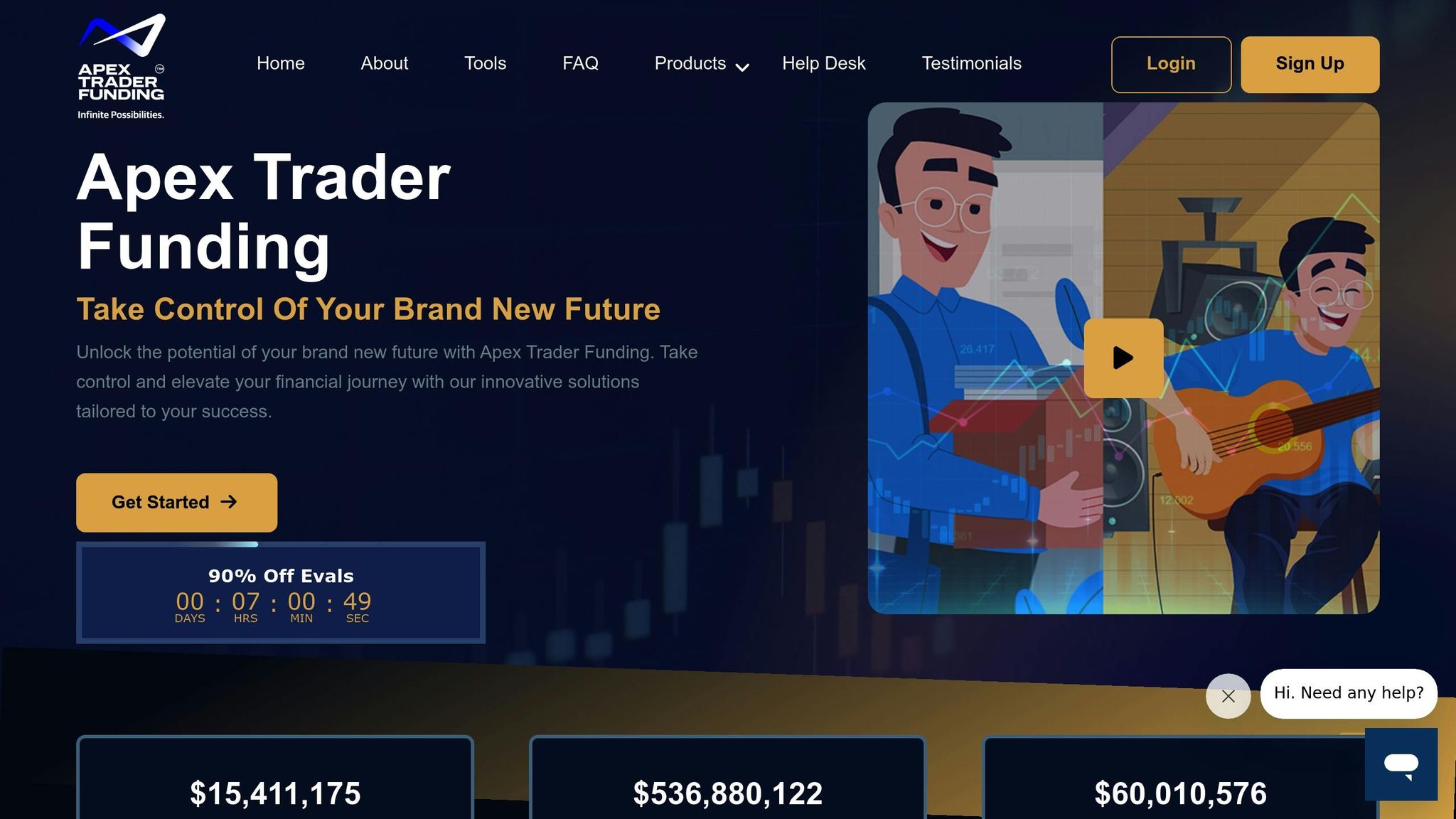
Apex Trader Funding is a proprietary trading firm with a primary focus on futures markets, serving traders internationally. To see how futures fit within a broader approach, review LuxAlgo’s overview of futures trading strategies. While its specialty lies in listed futures, it offers broad contract coverage across multiple futures sectors—useful for traders who want to diversify their systematic approaches inside one asset class. For example, traders can use LuxAlgo’s AI Backtesting Assistant to explore and compare strategy ideas by constraints like market, timeframe, and risk rules via the docs page on fetching strategies.
Asset Class Availability
Apex Trader Funding provides access to futures across major categories commonly associated with CME Group venues (including equity index, rates, FX, energy, metals, and agriculture). Their product list typically includes widely traded contracts such as the E-mini and Micro E-mini equity index futures, along with commodity and rate futures[4]. If you’re newer to index micros, CME’s overview of Micro E-mini futures is a useful reference for understanding why they’re popular for smaller position sizing.
This type of catalog is designed to support multiple styles: short-term momentum systems on equity indices, mean-reversion on rates, or volatility-driven approaches on energy and metals. The key is matching strategy risk to the firm’s drawdown and daily-loss constraints.
Spreads and Commissions
Apex Trader Funding operates with a clear and platform-dependent commission schedule. For Rithmic accounts, commissions are generally quoted on a per-contract basis; Tradovate accounts have their own schedule as well. Monthly fees typically cover platform access and data feeds, and resets or add-ons can apply depending on the program structure[4]. This setup ensures consistent “base costs,” while your variable costs depend mostly on contracts traded and execution quality—especially important for higher-frequency systems.
To keep your evaluation math realistic, it helps to stress-test strategy expectancy against costs. One way to do that is to measure trade outcomes under different trade counts (high vs. low frequency) and compare them to the fee structure—then validate the behavior using tools like LuxAlgo’s Volume Forecasting indicator when your approach is sensitive to volume regimes.
Leverage Policies
In futures prop programs, “leverage” is often expressed indirectly through contract limits and drawdown rules rather than a single margin ratio. Apex’s rules are typically framed around trailing thresholds and risk constraints that can include open positions[4]. As a reminder, leverage increases buying power but also increases sensitivity to small adverse moves—so contract selection (mini vs. micro) can be just as important as the strategy signal.
| Account Size | Monthly Fee | Max Loss/Trailing Threshold |
|---|---|---|
| $25,000 | $147 | $1,500 |
| $50,000 | $167 | $2,500 |
| $75,000 | $187 | $2,750 |
| $100,000 | $207 | $3,000 |
| $150,000 | $297 | $5,000 |
| $250,000 | $517 | $6,500 |
| $300,000 | $657 | $7,500 |
Platform Compatibility
Apex Trader Funding supports both Rithmic and Tradovate routing options, giving traders flexibility in execution workflow depending on the program they choose[4]. Both can provide access to listed futures markets, but most programs also include rules such as required flat times or restrictions around holding risk—so always match your strategy’s holding period to the rules you’re accepting.
3. TradeDay futures prop firm (official site)
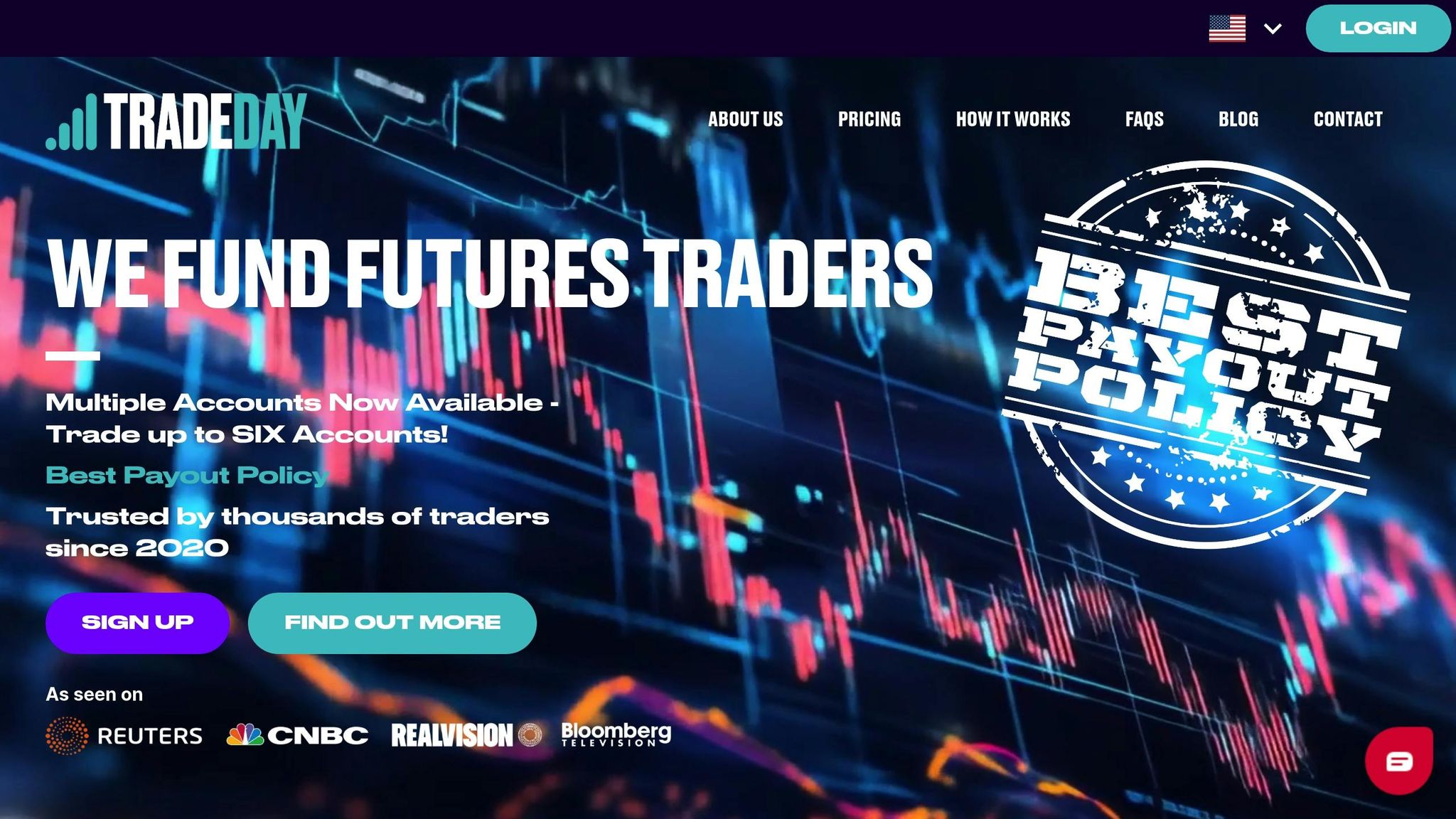
TradeDay stands out among proprietary trading firms with its exclusive focus on futures trading. For a framework on pattern recognition in trending markets, see LuxAlgo’s Price Action Concepts introduction. Unlike more diversified firms, TradeDay keeps things straightforward by offering live funding to traders who successfully complete their evaluation. The emphasis here is on clarity, simplicity, and rewarding consistent performance.
Asset Class Availability
TradeDay permits trading in listed futures products only, typically across CME Group exchanges (CME, CBOT, NYMEX, COMEX)[5]. That still leaves a wide product universe—equity indices, rates, FX futures, energy, metals, and agriculture—without mixing in CFDs or spot products. This limitation can be a benefit for traders who want a single “ruleset” across instruments (tick size, expiration cycles, exchange hours) rather than juggling multiple market structures.
- Equity Indices: Includes popular contracts like E-mini S&P 500 and Micro E-mini S&P 500.
- Currencies: Features major currency futures such as 6A, 6B, 6C, 6E, and more.
- Fixed Income: Ranges from 2-Year T-Notes to Ultra Bond Futures.
- Energy: Covers Crude Oil and Natural Gas variants.
- Metals: Offers Gold, Silver, Platinum, and Copper futures, including micro versions for select products.
- Agricultural Products: Includes contracts for Lean Hogs, Live Cattle, Soybeans, Corn, Wheat, and more.
This focused product lineup is paired with a streamlined commission and leverage structure, ensuring traders have access to essential markets without unnecessary complexity.
Spreads and Commissions
TradeDay uses a straightforward commission model, with rates varying by product and contract size. Micro contracts, in particular, can keep costs manageable when you’re refining execution or testing a strategy’s behavior with smaller position sizes. As with any futures setup, it’s worth checking your “round-turn” all-in cost and how it changes with volatility and liquidity conditions.
| Asset Class | Contract Example | Commission |
|---|---|---|
| Equity Index | E-mini S&P 500 (ES) | $2.34 |
| Equity Index | Micro E-mini S&P 500 (MES) | $0.77 |
| FX Futures | Euro FX (6E) | $2.56 |
| FX Futures | Micro Euro FX (M6E) | $0.66 |
| Energy | Crude Oil (CL) | $2.46 |
| Energy | Micro Crude Oil (MCL) | $0.92 |
| Metals | Gold (GC) | $2.56 |
| Metals | Micro Gold (MGC) | $0.92 |
| Agricultural | Corn (ZC) | $3.06 |
| Bonds | 10-Year T-Note (ZN) | $1.76 |
Agricultural futures tend to have the highest commissions, while micro contracts offer some of the lowest, starting at just $0.66. Bond futures fall in the middle, with rates around $1.76 for 10-Year T-Notes.
Leverage Policies
TradeDay provides buying power through its program rules, which commonly translate into contract limits (how many minis/micros you can hold) rather than a single leverage ratio. Leverage allows traders to control larger positions with less capital, but TradeDay enforces clear limits—for example, a $50,000 account can start with up to five mini contracts.
To manage risk, the firm applies a Trailing Maximum Drawdown, which caps the total loss a trader can incur. Understanding how trailing drawdown “ratchets” as equity increases is critical, because it can change the optimal way you scale position size during an evaluation.
Platform Compatibility
TradeDay works with Tradovate for account execution and management in its ecosystem, which helps keep the experience streamlined for futures-only workflows. This can be beneficial for traders who want a single platform context for journaling fills, reviewing executions, and managing contract limits.
4. ThinkCapital
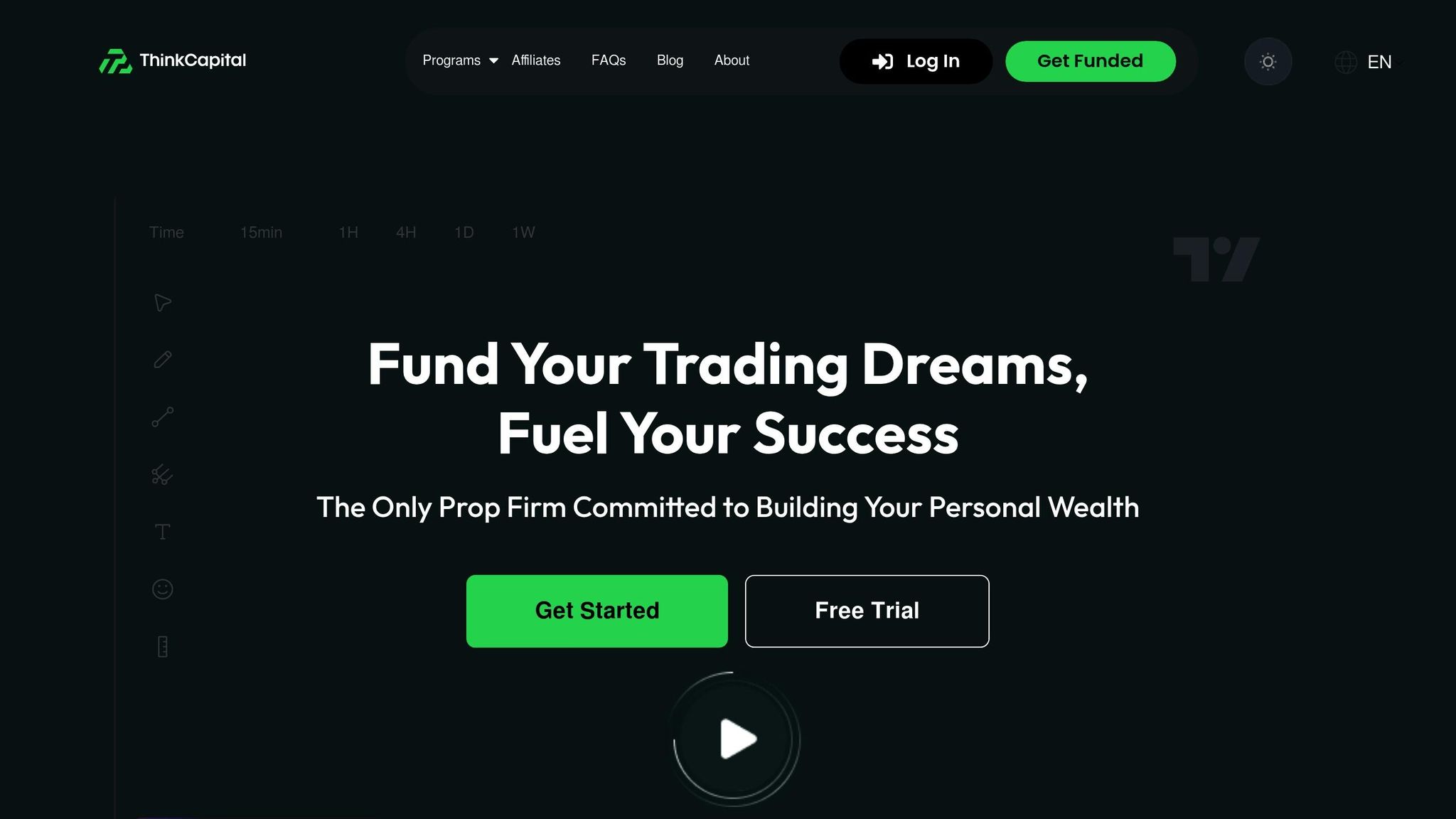
ThinkCapital, powered by ThinkMarkets, delivers a multi-asset trading experience tailored to different trading styles. Complement this with LuxAlgo’s guide to forex trading basics if you plan to focus on currency markets. With three account options - Lightning, Dual Step, and Nexus - the platform caters to varying risk preferences and strategies. Its integration with TradingView also allows traders to implement strategies directly from their preferred charting platform.
Asset Class Availability
ThinkCapital offers a range of assets, including Forex, cryptocurrencies, commodities, and indices. This variety gives traders the flexibility to diversify their portfolios, helping to manage risk and minimize volatility during market swings. If you want a concise baseline definition of why diversification matters, Investopedia’s overview of diversification is a helpful reference.
- Forex: Major currency pairs
- Cryptocurrencies: Popular options like Bitcoin and Ethereum
- Commodities: Precious metals such as gold and silver, along with energy assets like oil
- Indices: Major global indices
This broad selection supports a variety of trading strategies, providing opportunities for both short-term and long-term investments.
Spreads and Commissions
ThinkCapital provides two pricing models: raw spreads with commissions on MT5 or commission-free spreads on ThinkTrader[6]. Here’s a breakdown of the commission structure for MT5:
- Forex: $4.00 per lot with raw spreads
- Commodities (Gold/Silver): $4.00 per lot
- Indices: No commission
- Oil: No commission
- Cryptocurrencies: No commission
This setup appeals to different trading preferences. Traders who prioritize tight spreads, such as high-frequency traders, often lean toward the MT5 model. On the other hand, those looking for simplicity in fee calculations may prefer ThinkTrader’s commission-free approach.
These cost structures complement ThinkCapital’s flexible leverage options.
Leverage Policies
- Lightning accounts: Conservative leverage, with Forex often capped around 1:30
- Nexus accounts: Higher leverage, commonly quoted up to 1:100 on currency pairs (where permitted by program rules)
This flexibility empowers traders to choose leverage levels that align with their risk tolerance and trading goals.
Platform Compatibility
ThinkCapital supports multiple trading platforms, including TradingView, MetaTrader 4, and ThinkTrader. This compatibility allows traders to execute strategies seamlessly from their preferred tools.
Additionally, ThinkCapital enforces strict risk management measures. Traders who violate risk policies may face warnings, account restrictions, or even termination.
5. Hudson River Trading
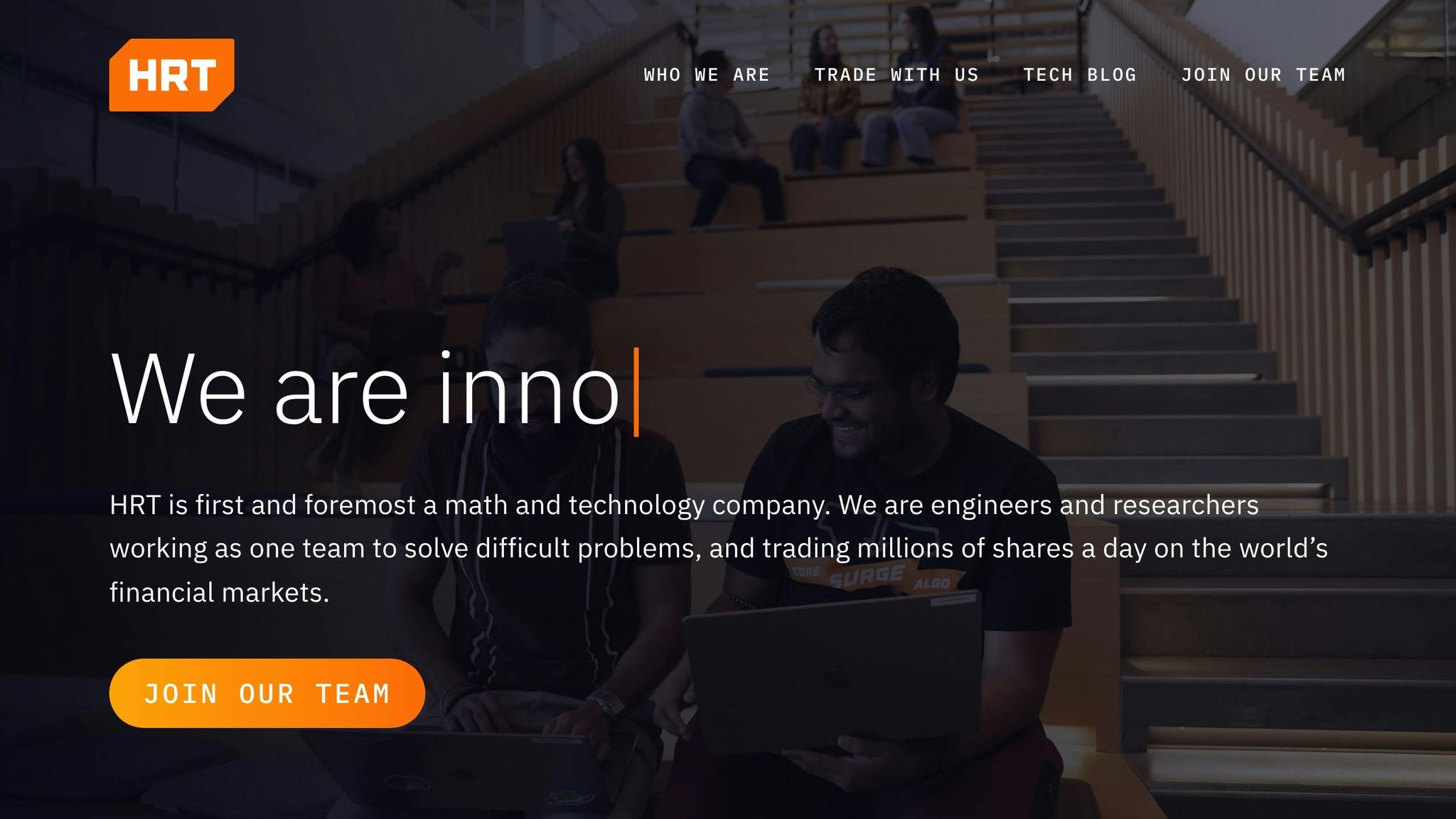
Hudson River Trading (HRT) is a major player in the world of automated trading, operating globally as a quantitative trading firm and market maker[7]. Since its founding in 2002, HRT has combined the roles of a technology company and a trading firm, setting itself apart with a strong focus on research, engineering, and systematic execution.
HRT emphasizes its tech-first mindset, describing itself as:
"HRT is first and foremost a math and technology company. We are engineers and researchers working as one team to solve difficult problems, and trading millions of shares a day on the world's financial markets." [7]
For traders studying systematic approaches, a useful distinction is that firms like HRT aren’t offering retail “funding challenges.” They deploy internal strategies—often market-making, statistical arbitrage, and other quantitative methods—where execution quality and research edge are the primary drivers. If you are building oscillator-based intraday systems inspired by systematic workflows, see LuxAlgo’s Oscillator Matrix overview.
Asset Class Availability
HRT participates across multiple asset classes and venues globally, including equities and other major markets, depending on liquidity and strategy fit[7]. This breadth is typical for large quantitative firms that diversify strategy families and market exposures to reduce reliance on any single regime.
Spreads and Commissions
Unlike retail-facing prop firms, HRT’s revenue model is centered on market-making and systematic trading. Instead of charging spreads or commissions to individual traders, firms like HRT earn by providing liquidity and managing execution across high volumes of transactions.
At a high level, market makers profit from the bid-ask spread while managing inventory risk and adverse selection. This is very different from a “profit split” model offered to retail traders, and it’s a key reason HRT isn’t directly comparable to evaluation-based prop firms.
Platform Compatibility
HRT relies on its proprietary systems to execute high-frequency, algorithmic trading across global venues. These systems are engineered to handle the complexities of modern market microstructure while maintaining speed and robustness.
Advantages and Disadvantages
When it comes to choosing a multi-asset prop firm, understanding the pros and cons of each option is key to finding the right fit for your trading style. LuxAlgo’s primer on risk management in trading is a helpful companion as you weigh the factors below.
The Trading Pit stands out with broad market coverage through its program structure, making it a fit for traders focused on diversification. On the flip side, strict rule enforcement can be challenging for traders who prefer looser constraints.
Apex Trader Funding has built a strong reputation in the futures trading space, including a publicly announced milestone of paying out just over $200 million to traders as of June 19, 2024[8]. It offers some of the best profit splits in the industry, ranging from 90 percent to 100 percent. However, its futures-centric approach may not suit traders looking for exposure to other asset classes.
TradeDay is futures-only (listed products), which can be a strength for traders who want consistent market structure across instruments. That said, the lack of CFDs or spot markets may be a drawback for traders who prefer those venues.
ThinkCapital is known for flexible account models and multi-asset exposure. However, U.S. traders may face platform limitations depending on availability—an issue for those who prefer advanced multi-chart workflows. For example, traders who rely on multi-instrument context can pair their charting workflow with LuxAlgo’s Multi-Chart Widget indicator on TradingView to compare instruments and timeframes side-by-side.
Hudson River Trading, a tech-driven market maker, excels in technology and scale but is not accessible to retail traders, making it less relevant for individual prop trading decisions.
It’s worth noting that prop trading is no easy feat. Success rates for passing challenges are often cited in the ~5-10 percent range, reflecting how evaluation rules, drawdown constraints, and trader psychology combine to filter out most attempts[9]. These figures underscore the demanding nature of this field across all firms.
Here’s a side-by-side look at the key features of each firm:
| Prop Firm | Asset Classes | Profit Split | Platform | Key Advantage | Main Limitation |
|---|---|---|---|---|---|
| The Trading Pit multi-asset prop firm | CFDs (where available), Futures | 80-85% | Varies by program | Broad access via program structure | Strict risk and behavior rules |
| Apex Trader Funding futures prop firm | Futures | 90-100% | Rithmic / Tradovate | Strong futures contract coverage | Futures-only focus |
| TradeDay futures prop firm | Futures | 75-80% | Tradovate ecosystem | Simplified futures-only workflow | No CFDs/spot markets |
| ThinkCapital | Forex, Cryptos, Commodities, Indices | 70-85% | ThinkTrader / MT / TradingView | Multi-asset flexibility | Platform access can vary by region |
| Hudson River Trading | All major classes | N/A (market maker) | Proprietary | Scale, research, execution edge | Not accessible to retail traders |
For U.S. traders, regulatory constraints and program eligibility can limit platform options and market access, especially for CFD-based offerings. A profit split of 80 percent or higher is generally considered excellent, but it should be evaluated alongside drawdown type (static vs. trailing), payout rules, and trading restrictions (news windows, minimum days, consistency rules).
Ultimately, the key to success lies in aligning your trading style with a firm's strengths while being prepared for the challenges that come with prop trading. Look for firms with strong transparency on rules, clear payout mechanics, and support that matches your experience level. While profit splits and asset variety are important, they shouldn’t be the sole factors in your decision-making process.
Conclusion
Choosing the right multi-asset prop firm can open the door to a variety of market opportunities. Whether it’s forex, futures, stocks, crypto, or commodities, a well-rounded firm provides access to multiple markets while supporting balanced risk management.
Pairing a trusted multi-asset prop firm with LuxAlgo’s AI Backtesting Assistant can take strategy development to the next level. By simulating trades across different asset classes, traders can refine their approaches, identify strategies that perform well under varying conditions, and improve overall consistency. For signal-and-overlay driven systems, start with LuxAlgo’s Signals & Overlays overview.
As technology continues to play a crucial role in consistent trading performance, success in prop trading requires more than access to capital. Strong process design, rule-aware risk controls, and robust strategy validation are increasingly important. Combining a reputable firm’s capital access with disciplined strategy development can create a more resilient approach to trading in a fast-evolving market landscape.
FAQs
What should I look for when choosing a multi-asset proprietary trading firm?
When choosing a multi-asset proprietary trading firm, it's crucial to weigh several key aspects. Start by examining the firm's reputation, track record, and trading philosophy - these elements provide insight into their credibility and approach. Next, review the variety of asset classes they offer, such as Forex, CFDs, futures, crypto, and stocks, to ensure they align with your specific trading goals.
Don't overlook trading conditions like profit splits, leverage, spreads, commissions, and risk management rules. These factors can significantly impact your trading experience and profitability. Also, consider the firm's technological tools, educational materials, and support systems, as these can play a big role in helping you build consistent and diversified strategies across different markets.
By focusing on these elements, you’ll be better equipped to select a firm that aligns with your objectives and supports your path to long-term success.
How do profit splits and risk management policies impact a trader's earning potential at multi-asset prop firms?
Profit-sharing and risk management policies are key factors that influence a trader's earnings at multi-asset prop firms. Firms that offer profit splits as high as 70-80 percent give traders the chance to keep a bigger portion of their earnings, which can significantly increase their income.
On the flip side, risk management policies - like limits on leverage and rules for drawdowns - might restrict short-term gains but are put in place to prevent heavy losses. These measures aim to strike a balance, ensuring traders can pursue long-term growth while keeping risks in check.
The best combination is a setup that pairs attractive profit-sharing with smart risk controls, giving traders the opportunity to grow their earnings while protecting their capital.
What are the pros and cons of trading exclusively in futures with firms like TradeDay?
Trading futures through firms like TradeDay brings several advantages. For starters, it offers high leverage, giving traders the ability to control larger positions with less capital. You also gain access to a wide variety of markets, and with trading hours that extend nearly 24 hours a day, there’s more flexibility to find opportunities and diversify your portfolio.
That said, futures trading isn’t without its challenges. The high volatility in these markets, combined with the amplified effects of leverage, can result in significant losses if not approached carefully. It’s a demanding endeavor that often requires constant attention to market movements and a solid grasp of market dynamics. Because of this, futures trading tends to be a better fit for seasoned traders who are prepared to navigate its complexity and risks.
References
LuxAlgo Resources
- Multi-Asset Proprietary Trading – LuxAlgo
- Prop Trading Pros & Cons – LuxAlgo
- AI Technology in Trading – LuxAlgo
- LuxAlgo Prop Firms Portal (Prop Firm Strategies)
- The Trading Pit Futures – LuxAlgo Prop Firm Page
- Apex Trader Funding – LuxAlgo Prop Firm Page
- TradeDay – LuxAlgo Prop Firm Page
- Futures Trading Strategies – LuxAlgo
- Fetching Strategies – LuxAlgo Docs
- Volume Forecasting Indicator – LuxAlgo Library
- Price Action Concepts – LuxAlgo Docs
- Forex Trading Basics – LuxAlgo
- Automated vs Manual Trading – LuxAlgo
- Oscillator Matrix – LuxAlgo Docs
- Algo Trading Articles – LuxAlgo
- Risk Management in Trading – LuxAlgo
- Multi-Chart Widget – LuxAlgo Library
- AI Backtesting Assistant – LuxAlgo
- Signals & Overlays – LuxAlgo Docs
External Resources
- Investopedia – Proprietary Trading
- Investopedia – Maximum Drawdown (MDD)
- Investopedia – Leverage
- Investopedia – Market-Maker Spread (Bid-Ask Spread)
- Investopedia – Diversification
- The Trading Pit – Official Site
- Apex Trader Funding – Official Site
- TradeDay – Official Site
- ThinkCapital – Official Site
- Hudson River Trading – Official Site
- PR Newswire – Apex Trader Funding Announces $200M Customer Payout (June 19, 2024)
- Investing Brokers – Prop Firm Challenge Pass Rates
- CME Group – Micro E-mini Equity Index Futures
- Rithmic – Official Site
- Tradovate – Official Site
- MetaTrader 4 – Official Site
- ThinkMarkets – Official Site
- TradingView – Official Site
- Prop Firm Cover Image 1 (Cloudinary)
- Prop Firm Cover Image 2 (Cloudinary)







